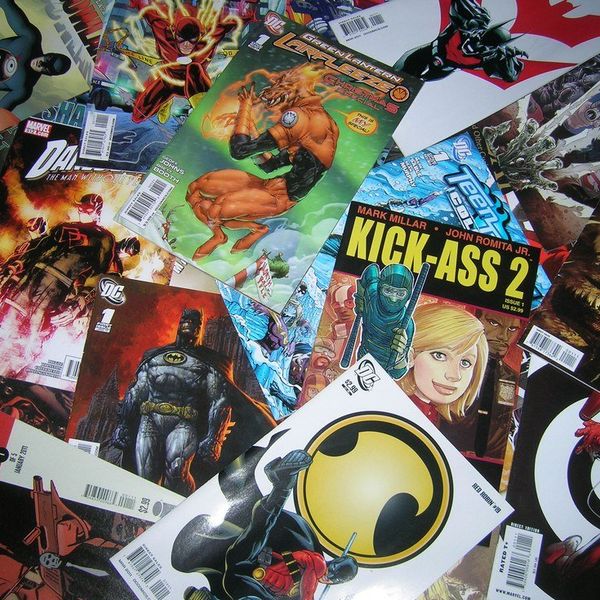Lately, in my spare time I have been reading a lot of comic books to keep my mind alert. I have found it to be therapeutic and soothing. While reading, I realized that comic books aren’t just colorful stories about superheroes. They have the power to change the world. Whether if it’s taking a stand against extremism, fighting sexual violence, or helping a kid come to terms with a disability, comics are definitely making the world a better place by opening up our perspectives and imagination.
Even through advanced technology and the film industry, fans get to see their favorite comic book characters come to life. Whether you are reading a comic book or you're watching a superhero movie, there is usually a valuable lesson being taught.Before Peter Parker even became SpiderMan, Uncle Ben was giving him the valuable lesson that "with great power comes great responsibility". Even through Christopher Nolan's Dark Knight series, Bruce Wayne is taught a valuable lesson as a kid when he falls in the cave and his dad picks him up. I often remind myself of his father's wise words; "Why do we fall? So that we can learn to pick ourselves up."
Throughout history movies and novels have changed the way we see the world, but what about comics? Can superheroes really impact how people think? While reading DC: The New Frontier by Darwyn Cooke, I realized that artists around the world use comics to influence society and change cultures. In The New Frontier, it covers chronicles and events that occur during and after World War II, focusing on the challenges of everyday people and superheroes in the 1950s. It involves #4-6 of the miniseries that involve the ending of Justice Society of America, Superman, The Suicide Squad, Green Arrow, Green Lantern, The Flash, and Batman as they fight against alien invasion.
One of my favorite topics they deal with is racism. Throughout the book, they deal with a Korean War veteran named John Wilson aka Steels (John Henry Irons); an African-American who wears a black hood secured by a hangman's noose and produces a sledgehammer in attempt to avenge his family, who was murdered by the KKK. While on the run after going on a killing spree, he is killed by the klansmen. He eventually becomes Steel (Man of Iron). The miniseries in the book continues to battle real issues such as World Wars, communism, and racism all the way to an alien invasion.
Through history, comic book writers have been affiliating real life issues and circumstances into comic books to inspire hope. In 2012, the artist and filmmaker Ram Devineni was horrified when a 23-year-old Dehli woman was gang-raped and killed in India. He even visited the city just to find out how particularly disturbing the area was. He talked to a few policemen who has mentioned that “ no good girls walk the street alone”. He was also shocked to find out that most rape victims were shamed or threatened to keep quiet by the police officers and their own family members. Devineni realized that violence was just a symptom of the culture where women are often viewed as second-class citizens. Because of this, Devineni created Priya’s Shakti, a comic about a girl named Priya who dreams of becoming a teacher, but because of her culture and society, it is forbidden for her to go to school and eventually she is kicked out by her family. Throughout the book, Priya meets a Hindu goddess who gives her amazing abilities that allows her to change people’s minds. She even tames a wild tiger and rides it around her town. Through this Indian superhero, Devineni hopes to change how Indian teens think about rape, gender, and equality.
There are many artists like Devineni that are using comic books and superheroes to not only influence a culture or society but to provide hope and optimistically allow that hope to change the world. Whether through Marvel or DC, whether it's through current favorite superheroes or new sci-fi characters created for tv shows and movies, comics are always going to influence the way people think and how they view society. They can certainly change the world.




















